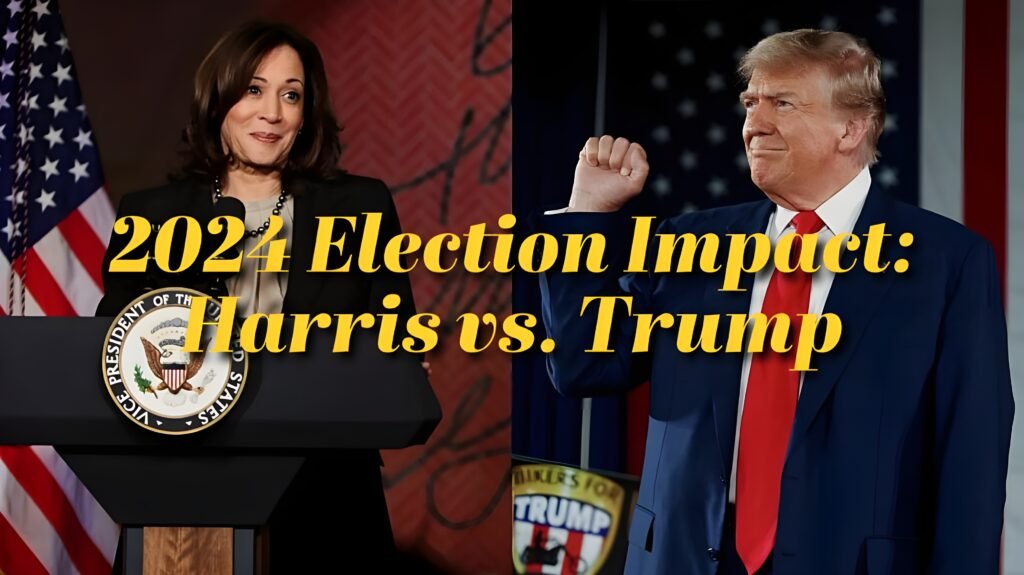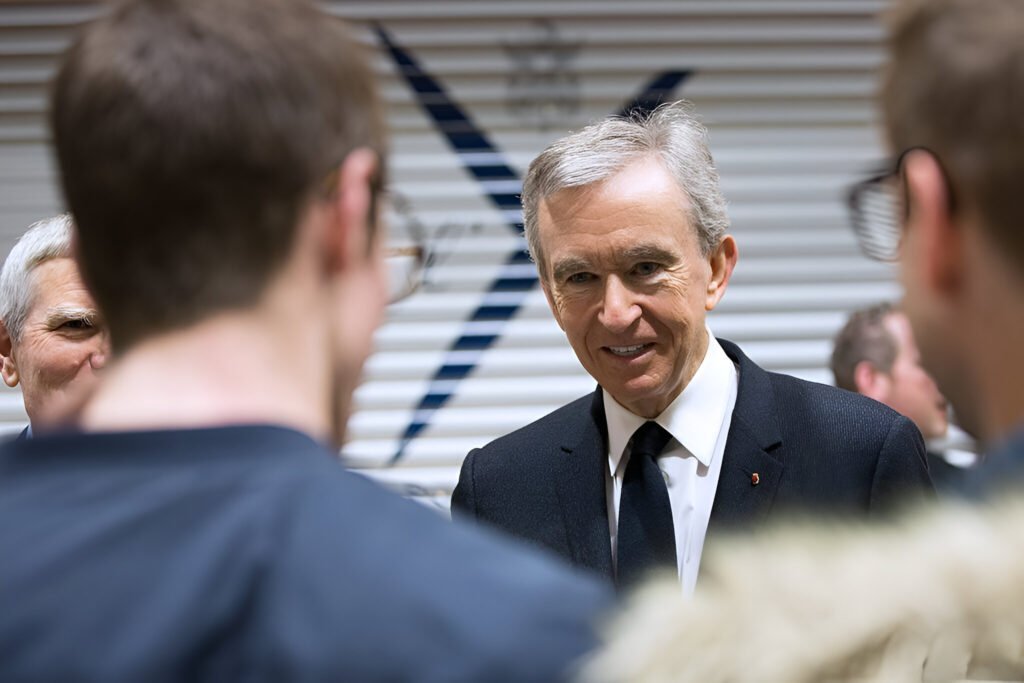A presidential election is a critical event as it impacts the financial markets significantly. With the 2024 election up ahead, the candidates are Vice President Kamala Harris and former President Donald Trump, Investors will be looking at what will be the economic impact of having different policies as the election season approaches. Market volatility generally picks up in the election season when investors remain uncertain about who will win and what the economic impact will be. This discussion also goes into how the financial markets will respond to the Harris-Trump election, focusing on immediate responses, regulatory approaches to emerging markets, historical trends, and long-term investment strategies.
Instant Market Reactions
Money and stock markets tend to be very sensitive to political matters, including debates between or polls about presidential candidates. Increased media coverage and public attention can lead to increased volatility as investors attempt to predict the likely economic policies of the new presidents. During recent decades, markets have liked pro-business candidates but have reacted negatively to opponents arguing for increased taxes or more regulation.
Investors are considering how Harris’s policies would differ from Trump’s in the current election cycle. Even though they would likely run parallel to the Biden administration’s focus on infrastructure, healthcare, and green energy, the election outcome would surely switch market sentiment and sector performance.
Approaches to Regulation and Emerging Markets
It is greatly important for investors to appreciate the approach of the candidate when it comes to regulation involving emerging markets such as cryptocurrency, green energy, and technology.
- Cryptocurrency: Just as Biden is doing, the Harris administration will find many steps to regulate cryptocurrencies to guard against financial crimes and enforce consumer protection policies. Such a regime has all it takes to bring so much uncertainty to the market of cryptos, with everyone keen on knowing how tight regulations can get. When it came to cryptocurrencies, Trump’s administration was quite lenient, which may actually favor such digital assets in the market.
- Renewable Energy: Policies that Harris would likely support will see the pursuit of large investments in renewable energies similar to those of Biden. Her policies may enhance companies dealing with renewable energy. On the contrary, Trump’s favoritism of conventional fuel energies, such as oil and gas, may continue to keep them afloat, resulting in divergent effects on the energy sector across the election outcome.
- Technology: They also differ in their views on the regulation of technology, especially in regard to data privacy and antitrust-related issues. A Harris administration is likely to push for tight regulations on the biggest tech behemoths—something that could have really shaken up the tech sector. Trump was previously in favor of less regulation—a scenario likely much more favorable to large tech companies.
Historical Market Performance and Trends
While it is true that history shows markets generally doing well under both Democrats and Republicans, the specifics of each presidency, policies, and economic climate matter greatly. For instance, tax cuts and deregulation under Trump boosted the stock market during his administration, while Biden’s focus on investments in infrastructure and clean energy is having mixed effects according to the sector. The research by U.S. Bank shows that, on average, since 1950, U.S. stocks have had a return of 9.1% in election years. This pattern would seem to indicate that although elections could bring in short-term volatility, for the most part, the broader market follows a growth path commensurate with long-term economic trends—and does not do so solely because of the electoral process.
Market Volatility and Uncertainty Elections always bring about some amount of uncertainty which then leads to volatility in the market. Investors might react to news and speculation that includes likely policy changes. The broader market normalizes after an election as this initial uncertainty ebbs away and investors begin to get a view of policy direction from a new administration.
The Impact of Congressional Control
The makeup of Congress is critical to the legislative process and could prove very impactful regarding market sentiment. Unified government, where one party controls the presidency and both houses of Congress, can work out the kinks in the legislative process more easily to the benefit of the market. Conversely, a divided government typically results in legislative gridlock that is often taken to support the status quo and reduce uncertainty, at least protecting the markets from drastic policy shifts.
General Socio-Economic Level
However, market performance is noticed more strongly in the general economic setting than during a presidential election. The forces that seem to impact trends in markets are normally policies from the Federal Reserve, corporate earnings, and global economic conditions. For example, Federal Reserve interest rate policy is likely to overshadow political goings-on because interest-rate changes directly affect the costs of borrowing, consumer spending, and, consequently, the economy at large.
Long-term Investment Strategies
As assured as the volatility surrounding elections is to be, financial experts advise that a long-range view is appropriate for investing. History shows that markets have bounced back over time and tended to grow, no matter which party was in control. Just as Zacks Investment Management notes, having a long-range approach for your investments and staying diversified are two ways you can limit risk during times when there is more potential for volatility due to it being an election year. Such an approach enables investors to maneuver through the short-term fluctuations and, therefore, benefit from the long-term growth potential.
Conclusion
It is undeniable that during presidential elections, a degree of uncertainty and short-term volatility is introduced into financial markets. Yet the long-term influence of the election is typically dampened by stronger economic forces at play—Federal Reserve policies, corporate earnings, and global economic conditions. Certain policies that presidential candidates put forward may exercise some influence on the concrete market sectors, but in general, the market easily gets used to and grows under new circumstances. It is best that investors are long-term and diversified, and do not let short-term political developments force investment decisions. That way, they will be able to navigate through the election-year complexities and at the same time benefit from the long-term potential for growth in the financial markets. As always, for a more in-depth look at the topics, read the full articles from U.S. Bank, J.P. Morgan, and Zacks Investment Management.
Author
Hi, I’m Amine! My mission is to make finance accessible and fun for everyone. I love breaking down things that seem difficult into simple, easy, and useful tips that help you make good decisions. My aim is to ensure your experience on our blog is informative and fun.
View all posts




Hi there, just became alert to your blog through Google, and found that it is truly informative. I’m going to watch out for brussels. I’ll appreciate if you continue this in future. Numerous people will be benefited from your writing. Cheers!
Some truly interesting info , well written and broadly user friendly.
I have read several good stuff here. Certainly worth bookmarking for revisiting. I wonder how much effort you put to create such a great informative website.
Please let me know if you’re looking for a article author for your weblog. You have some really great posts and I think I would be a good asset. If you ever want to take some of the load off, I’d absolutely love to write some articles for your blog in exchange for a link back to mine. Please shoot me an e-mail if interested. Many thanks!
What i do not understood is in fact how you are not really a lot more neatly-preferred than you may be right now. You’re so intelligent. You understand therefore significantly in terms of this topic, produced me in my view imagine it from a lot of numerous angles. Its like men and women aren’t fascinated except it’s one thing to accomplish with Woman gaga! Your individual stuffs excellent. Always take care of it up!
Good day very cool web site!! Man .. Excellent .. Wonderful .. I’ll bookmark your site and take the feeds also?KI’m happy to find a lot of helpful information right here in the submit, we want develop more strategies in this regard, thanks for sharing. . . . . .
Its good as your other blog posts : D, regards for putting up.
I’m not sure where you are getting your info, but good topic. I needs to spend some time learning more or understanding more. Thanks for fantastic info I was looking for this information for my mission.
Thanks for the auspicious writeup. It actually used to be a amusement account it. Glance advanced to far introduced agreeable from you! By the way, how could we be in contact?
Does your blog have a contact page? I’m having a tough time locating it but, I’d like to send you an e-mail. I’ve got some recommendations for your blog you might be interested in hearing. Either way, great site and I look forward to seeing it grow over time.